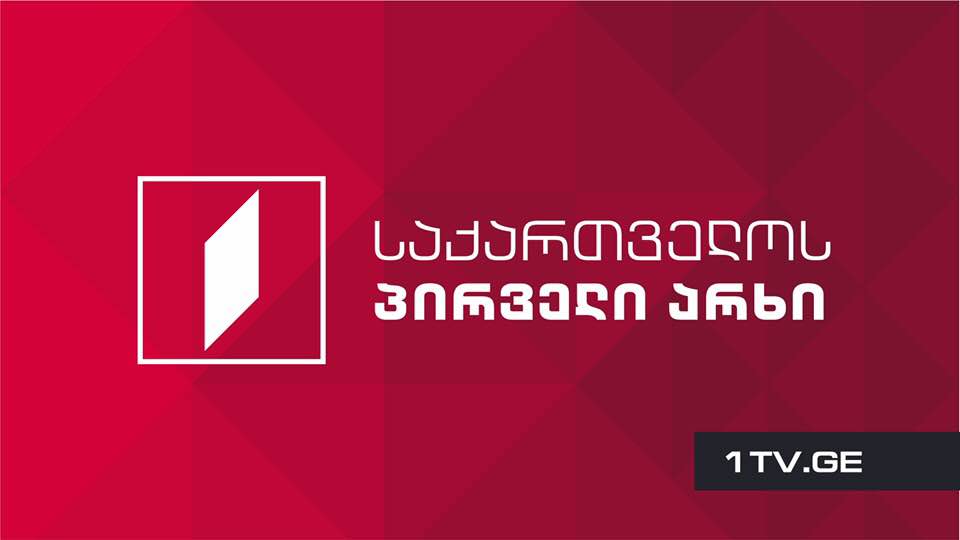
The release of false and unverified information about Georgian Public Broadcaster on part of different organizations has become frequent lately that acquired a certain form of negative campaign. Reports of respectable organizations included various false facts.
We believe that this standpoint does not represent the viewpoint of these organizations or questions their ability of objective evaluation but has to do with receipt and distribution of the information from local sources without verification.
The last example of the distribution of false information is www.mediachecker.ge based on which the report of ISFED about Ia Kerzaia’s case was not included in headline news of news bulletins. www.mediachecker.ge corrected the mistake after journalists of First Channel expressed protest over the fact.
Also, Media Development Foundation organization with the financing of Open Society-Georgia Foundation published research on the topic: Informing regions resided by representatives of ethnic minorities about issues of Georgia’s Euro-Atlantic Integration.” Authors of the research attempted to portray interests of the research in a different way. The Georgian Public Broadcaster was mentioned in connection with Russian TV Channels and Russian rhetoric, while journalists were accused of propagating anti-Western and pro-Russian narrative.
The research also misinterprets TV stories of “The 42nd Parallel” Program. The program has been on the air for more than 1 year and has prepared over 100 TV stories. Authors of the research distorted phrases from 7 TV stories and accused authors of the program of Kremlin disposition. Authors of the research went further and declared one of the TV stories, which was prepared based on books and articles of George Soros, as part of anti-European propaganda.
Besides methodological faults of the research, there is a problem of conflict of interests. Head of the research Tamar Kintsurashvili was Director General of Georgian Public Broadcaster in 2005-2008. She led pro-governmental policy during her duty term.
The Georgian Public Broadcaster gave the opportunity to Keti Khutsishvili, Executive Director of Open Society – Georgia Foundation to make explanations in the open air. Khutsishvili admitted faults existing around the research but did not question its legitimacy.
The misinformation and unprofessional research damaged the reputation of Public Broadcaster and its journalists. We perceive this fact as the attempt to interfere into the broadcaster’s editorial policy. We hope that the central office of the Foundation makes corresponding reaction that, in its turn, will contribute to pluralism and democracy. The Georgian Public Broadcaster expresses readiness with Open Society – Georgia Foundation in regulation of the issue.
The material published by the webpage of the United States Department of State talks about increased advertising revenues of Public Broadcaster in the first quarter of 2018. The financial report of the Georgian National Communications Commission is provided as the source. However, such reports often contain financial information for the last period. For example, more than half of the advertising revenues of Public Broadcaster in the first quarter of 2018 represent covering the liabilities of the last year, while the second half is the revenue from sports transmissions with the old version of the legislation. Public Broadcaster has begun advertising purchasing since December of 2018 as per the new edition of the Law on Broadcasting and therefore it could not effect revenues of the first quarter.
After making changes into Law on Broadcasting on March 5 of 2018, Georgian First Channel for the first time in its history began fulfilling its obligations based on which Public Broadcaster has to allocate no less that 25% of its products to the programs prepared by independent private legal persons. The European Broadcasting Union (EBU) said about the draft-project of amendments to Law on Broadcasting: “As already mentioned above, the exemption of programme- and content-related contracts from the general public procurement rules is important and in line with European standards.”
It is important that Georgia-European Union Association Agreement also envisages bringing normative acts about state purchasing in line with European standards and legislation. After carried out activities following the made changes, the rating of Public Broadcaster in February of 2019 has been increased by 80 % (in comparison to the same period of last year). The duration of transmission of local production has doubled and amounts 12 hours a day while it amounted 6.5 hours in 2017. Also, based on the research carried out by the US National-Democratic Institute (NDI) in December of 2018, trust towards Public Broadcaster increased from 4% (March, 2018) to 12%, i.e. increased by three times.
The interim report of the OSCE Office for Democratic Institutions and Human Rights (ODIHR) about 2018 presidential elections alleged that the Public Broadcaster allocated more airtime to the candidates of political parties which had budgetary financing than candidates of other parties in the interim report. The factual mistake was partially corrected in the final report.
The international organization Freedom House admitted the mistake committed about Public Broadcaster in the annual report for 2017 regarding the countries being in a transition period. The report said that Second Channel which provided live transmission of parliamentary sessions had been closed. Public Broadcaster strictly reacted over the misinformation.
All the above-mentioned shows the evident attempt of Public Broadcaster’s discrediting that can be linked to the latest growing trust toward Public Broadcaster and the improved rating (both TV and online).
Whatever reasons for false facts are, we are applying to all international organizations with the request to verify the information about Public Broadcaster in their reports and monitoring since the current circumstance fundamentally inflicts harm to such an institution that is capable to improve the polarized media environment in Georgia and provide the public with reliable, balanced information and at introduce and protect international media standards.





